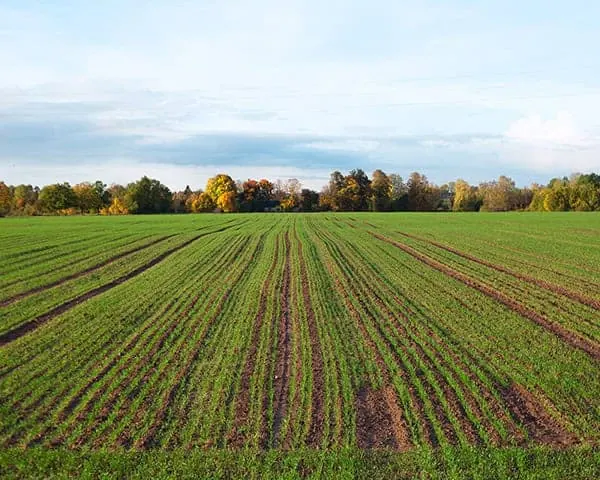Farm Worker Rights
Legal Services for Farm Workers Since 1993
The Farm Worker Rights Division of Colorado Legal Services provides education, advocacy, and legal representation to farm workers throughout Colorado. We are based in the Denver office of Colorado Legal Services, and we serve farm workers throughout the state, with an emphasis on Northeastern Colorado, the Arkansas Valley/Southeastern Colorado, the San Luis Valley, and the Western Slope. We collaborate with community groups, nongovernmental organizations, governmental agencies and others who also serve the interests of Colorado’s farm workers.
We offer free and confidential services to individuals and families. We also participate in community education events to provide information about the legal rights of farm workers.
We assist farm workers with a variety of legal issues related to their work such as unpaid wages, dangerous or abusive working conditions, sexual harassment and other types of discrimination.

Wages
We represent farm workers seeking to recover unpaid wages or who are misclassified or have other wage related issues.
Farm workers in Colorado must receive the higher of the hourly federal or state minimum wage. Unfortunately, farm workers often do not receive the minimum wage, especially when they are working at a piece rate (i.e., being paid by the bucket or bag). Regardless of the method of payment, a farm worker must receive the minimum hourly wage for each hour worked. Other common wage problems include failure to receive pay stubs, unlawful deductions, and failure to receive pay for all hours worked. The following laws regulate the payment of wages to Colorado farm workers: the Fair Labor Standards Act, the Colorado Wage Statute and the Colorado Minimum Wage. Please note that the minimum wage changes each year on January 1st. For more information on unpaid wages, please see our sample wage-demand letter in English or in Spanish and the complaint process with the Colorado Department of Labor and Employment.

H-2A Workers’ Rights
We represent H-2A farm workers and those in corresponding employment who are seeking to enforce their rights under the H-2A regulations and/or state or federal laws.
The H-2A program authorizes agricultural employers to bring in foreign workers on temporary visas if the employer can show that there are insufficient U.S. workers available to do work. These employers are required to comply with federal regulations relating to recruitment, wages, housing and payment of work-related expenses.
Civil Rights
We represent farm workers who have been discriminated against in their employment based upon their race, color, national origin, and sex (including sexual harassment).
Immigration
We represent farm workers who are human trafficking survivors or victims of other work related crimes. We also represent eligible farm workers interested in going through the naturalization process to become U.S. Citizens.
Working and Living Conditions
Combating pesticide exposure, fighting for adequate housing and sustenance, ensuring adequate field sanitation, and representation related to on the job injuries.
Federal law, the Migrant and Seasonal Agricultural Worker Protection Act (AWPA), requires agricultural employers and farm labor contractors to observe certain labor standards when employing migrant and seasonal agricultural workers. Such standards include, but are not limited to, recruitment, wages, transportation and housing.
Farm Labor Contractors
Many farm workers are employed by a farm labor contractor who acts as the “middleman” between the workers and the agricultural employer. Current law requires that such farm labor contractors must be licensed both by the federal government (page 3) and Colorado. Further, agricultural employers that use farm labor contractors are required to use someone who is properly licensed.
Transportation
Many farm workers are employed by a farm labor contractor who acts as the “middleman” between the workers and the agricultural employer. Current law requires that such farm labor contractors must be licensed both by the federal government (page 3) and Colorado. Further, agricultural employers that use farm labor contractors are required to use someone who is properly licensed.
Housing
Temporary farm worker housing can be overcrowded, unsanitary and dilapidated. Anyone who owns or controls such housing for farm workers must ensure that it meets health and safety standards at both the state and federal level.
Field Sanitation
For most employers, federal law states that farm workers must have potable drinking water, bathrooms and hand washing facilities in the fields.
Pesticides
A study conducted by CPAP in 2001 found that 59 percent of farm workers had never received pesticide safety training and that 49 percent of farm workers had experienced symptoms of pesticide exposure like skin irritation, headaches or inflamed eyes after working in the fields.
The Worker Protection Standards (WPS) regulate the use of pesticides on farms, in greenhouses and in nurseries. WPS, for example, requires safety trainings for workers, decontamination sites, reentry intervals after pesticide use and special training and protective gear for those handling and applying pesticides. A farm worker can report any violations of the WPS to the Colorado Department of Agriculture. Further, a third party, such as a nongovernmental organization, can report a pesticides complaint on behalf of a worker, who wishes to remain anonymous, by filing an Agricultural Worker Information Referral Form. Violations of pesticide safety regulations should be reported as soon as possible.
Get Involved
Legal Fellowships
We welcome applications from an attorney/law fellow who is interested in applying for funding through Skadden, Equal Justice Works, or other equivalent fellowship programs.
Volunteer Attorneys
We welcome any volunteer attorneys who can provide pro bono services to assist with legal cases on behalf of farm workers. For more information, please contact us at info@coloradofarmworkers.org or at (303) 866-9366.
